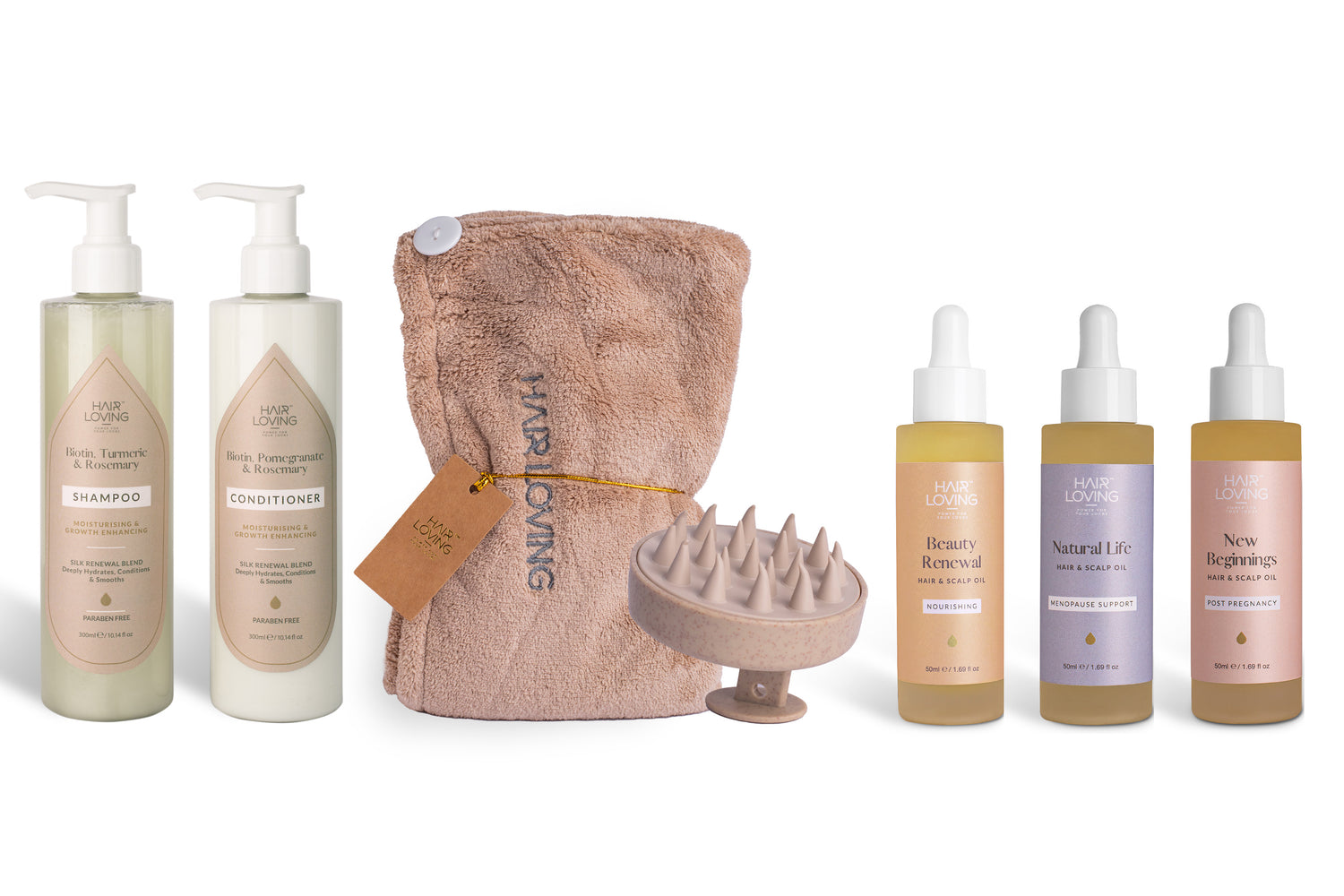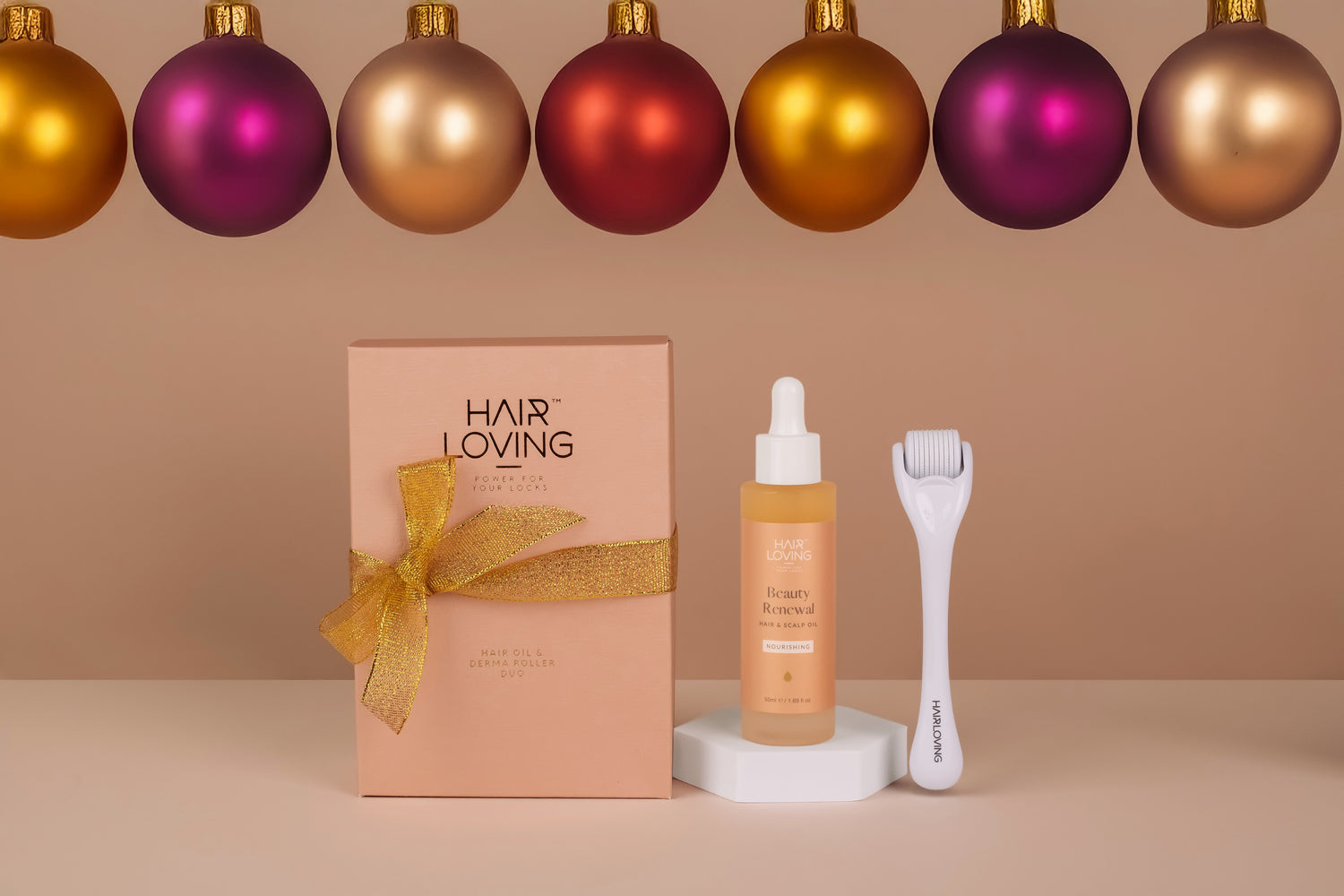At Hair Loving, we celebrate the diversity and beauty of all women. Understanding how different life stages, such as menopause, impact women from various backgrounds is crucial to our mission of providing tailored haircare solutions. Today, we delve into the unique experiences of ethnic minority women in the UK as they navigate menopause, exploring how culture, genetics, and other factors influence their hair health.
Understanding Menopause: A Universal Journey
Menopause marks a significant transition in a woman's life, typically occurring between the ages of 45 and 55. It's characterized by the end of menstrual cycles, hormonal changes, and a host of physical and emotional symptoms. Hair thinning and loss are common concerns, driven by the decrease in oestrogen and progesterone levels. However, the experience of menopause can vary widely among women, influenced by a range of factors including genetics, health, lifestyle, and cultural background.
The Role of Genetics in Hair Health
Genetics play a pivotal role in determining hair characteristics such as texture, density, and growth patterns. For ethnic minority women, particularly those of African, Asian, and Afro-Caribbean descent, genetic factors can result in diverse hair types that respond differently to hormonal changes.
- African Hair Types: Women of African descent often have hair that is tightly coiled and prone to dryness and breakage. During menopause, the natural reduction in oil production can exacerbate these issues, leading to increased hair fragility.
- Asian Hair Types: Typically characterized by straight and thick strands, Asian hair may experience noticeable thinning during menopause. The contrast between pre- and post-menopausal hair volume can be striking.
- Afro-Caribbean Hair Types: This hair type combines the traits of African and other hair textures, often resulting in a unique set of challenges during menopause. The blend of textures can mean a combination of dryness, brittleness, and thinning.
Cultural Influences on Menopause and Hair Care
Cultural beliefs and practices significantly shape how women perceive and manage menopause and hair health. In many ethnic minority communities in the UK, traditional remedies and practices play an essential role in hair care.
- African and Afro-Caribbean Cultures: These cultures often emphasize natural and holistic approaches to hair care, using ingredients like shea butter, coconut oil, and herbal treatments. Such practices can help mitigate some of the dryness and breakage experienced during menopause.
- Asian Cultures: Herbal remedies and scalp massages with oils like amla and sesame are common. These practices not only promote hair health but also provide a soothing ritual that can alleviate some of the stress associated with menopause.
Socioeconomic and Environmental Factors
Ethnic minority women in the UK may also face unique socioeconomic and environmental challenges that impact their menopausal experience and hair health. Access to healthcare, education about menopause, and availability of specialized haircare products can vary.
- Healthcare Access: Limited access to culturally competent healthcare can hinder the ability of ethnic minority women to receive proper guidance and treatment for menopausal symptoms, including hair loss.
- Stress and Lifestyle: Higher stress levels due to socioeconomic pressures can exacerbate menopausal symptoms. Stress is a known factor that can contribute to hair loss and thinning.
- Product Availability: The haircare market in the UK is increasingly diverse, but finding products specifically designed for ethnic hair types can still be a challenge. This can lead to the use of unsuitable products that fail to address the specific needs during menopause.
Embracing Individuality with Hair Loving
At Hair Loving, we recognize the unique needs of ethnic minority women navigating menopause. Our commitment to inclusivity means offering a range of products tailored to diverse hair types and concerns. Here’s how we support you:
- Tailored Haircare Solutions: Our products are formulated with natural ingredients that cater to different hair textures, providing hydration, strength, and protection.
- Education and Support: We provide resources and support to help you understand the changes your hair might undergo during menopause and how best to care for it.
- Community Engagement: We engage with diverse communities to learn about their specific needs and preferences, ensuring our products and services are truly inclusive.
Conclusion
Menopause is a shared journey with unique paths for each woman. At Hair Loving, we honor these differences and strive to provide solutions that embrace the beauty and individuality of every woman. Understanding the intersection of culture, genetics, and other factors empowers us to offer the best in haircare during this transformative time. Remember, you are not alone—together, we can navigate menopause with confidence and grace.
Stay loving, stay beautiful.
Hair Loving Team





